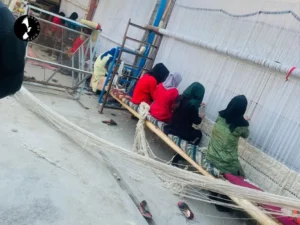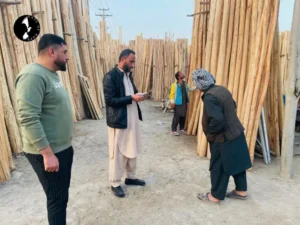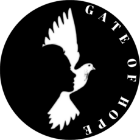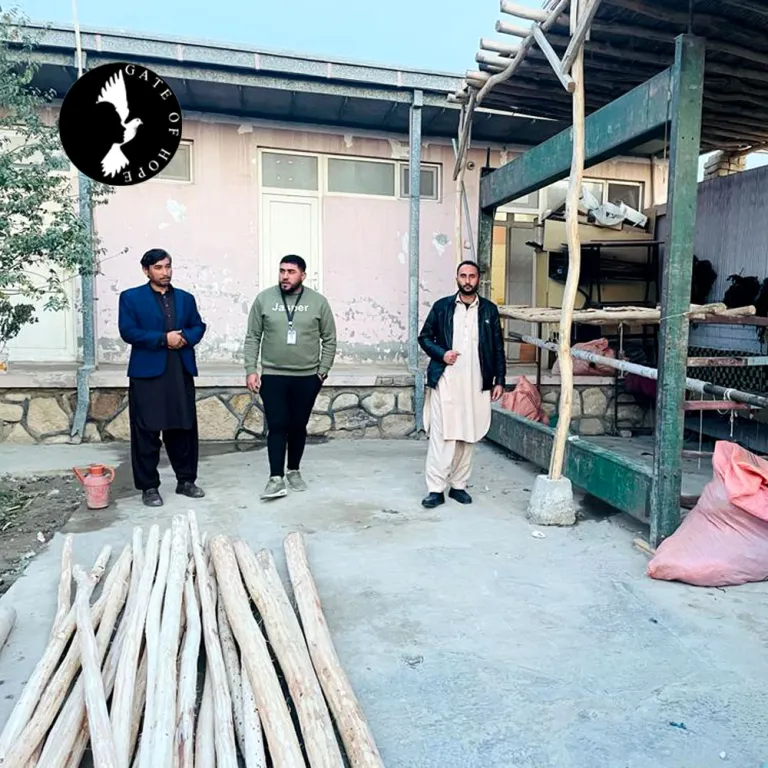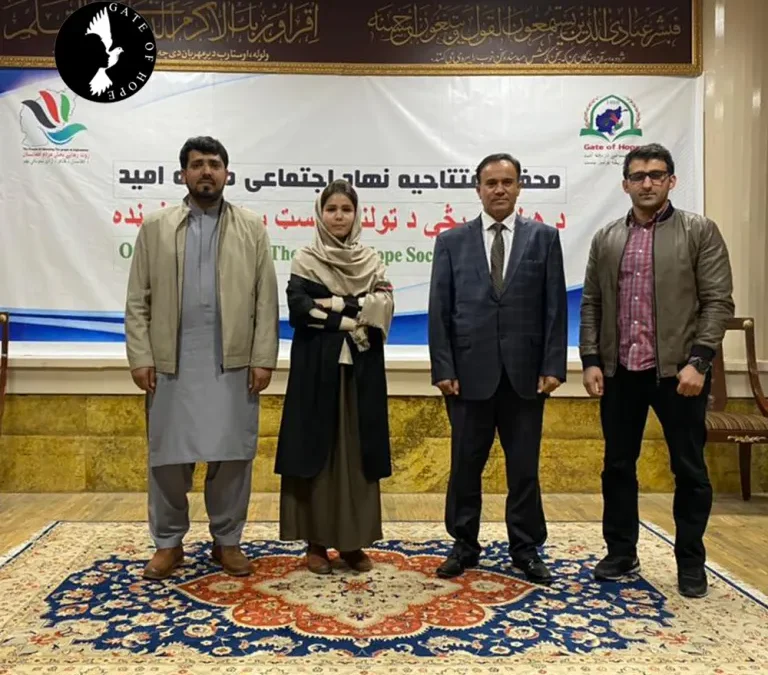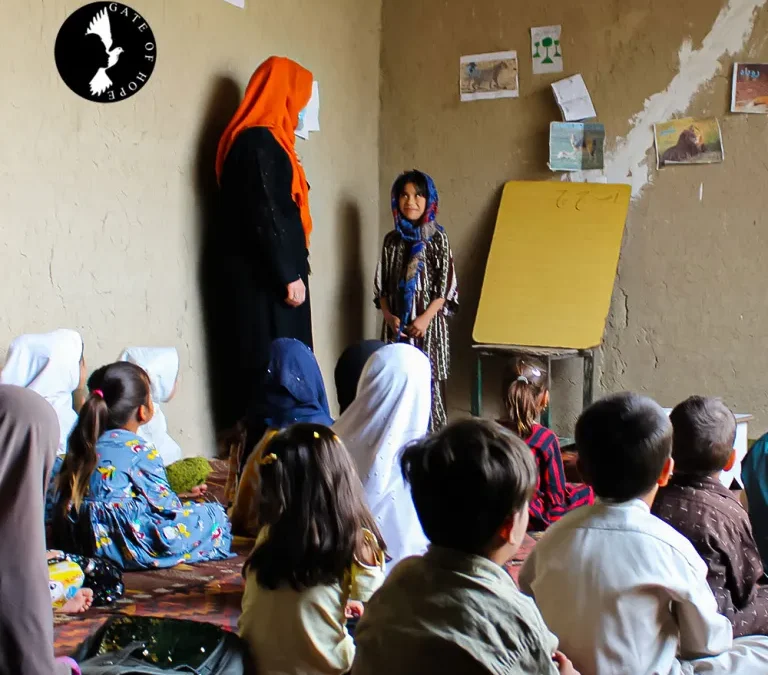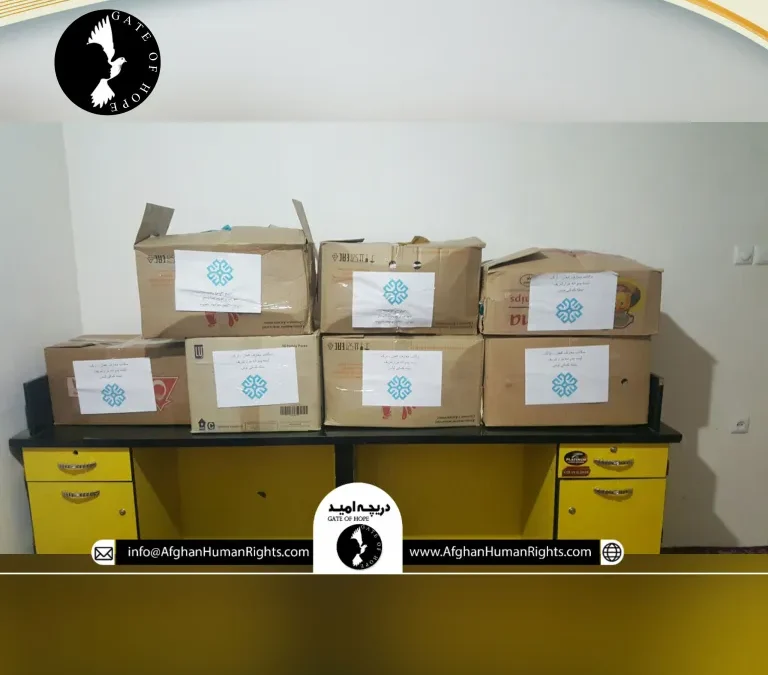In a nation striving to rebuild and find its path amid challenges, Afghanistan’s resilience shines through its rich culture and heritage. Among the many beacons of hope in this journey is the work of non-governmental organizations like Gate of Hope (GOH), dedicated to fostering development and providing support where it’s most needed.
Recently, Professor Ajmal Aryan, a key figure at GOH, led a delegation to a special place that symbolizes the convergence of tradition, resilience, and hope – the carpet weaving workshop of Yaldash Mukhtoom. This visit wasn’t just a routine check; it was a testament to GOH’s commitment to nurturing Afghan crafts, particularly those that empower communities economically and culturally.
Yaldash Mukhtoom’s workshop, nestled in a quaint corner of Afghanistan, buzzes with activity. Here, artisans, predominantly women, are engaged in the intricate art of carpet weaving, a skill passed down through generations. With the support of GOH, the workshop has seen transformative changes. Essential materials like hand sticks, baked bricks for building, tarps, nails, and ropes were provided, ensuring that the artisans have everything they need to weave not just carpets but also a tapestry of hope.
Carpet weaving is not just a craft in Afghanistan; it’s a lifeline and a cultural emblem. Afghan carpets are renowned worldwide for their intricate designs and rich history. By supporting this industry, GOH isn’t just aiding an economic sector; it’s helping preserve a vital part of Afghanistan’s cultural identity. More importantly, it empowers women, who are often the primary weavers, giving them financial independence and a voice in their communities.
Despite its cultural and economic importance, the Afghan carpet industry faces numerous challenges. Limited access to quality materials, inadequate infrastructure, and a lack of global market access are just a few. GOH’s intervention, therefore, is not just about providing materials but also about bridging these gaps. By equipping the workshop with necessary supplies and support, GOH is helping these artisans overcome significant barriers to their trade.
The visit by Professor Aryan and his team is just one step in a longer journey. GOH envisions a future where Afghan artisans are not only self-sufficient but also globally recognized. The organization is working towards expanding its support, aiming to include more workshops and artisans under its wing. This vision, however, requires collective effort, both locally and internationally.
The story of Yaldash Mukhtoom’s workshop is a call to action for all of us. Supporting organizations like GOH is not just about charity; it’s about investing in the future of Afghanistan and its rich cultural heritage. Every contribution, be it big or small, can make a significant difference in the lives of these artisans.
The visit to Yaldash Mukhtoom’s workshop by Gate of Hope’s team is a powerful reminder of the potential within Afghanistan. In the face of adversity, initiatives like these weaves not just carpets but also hope – hope for a future where tradition, culture, and economic development coexist and flourish.
